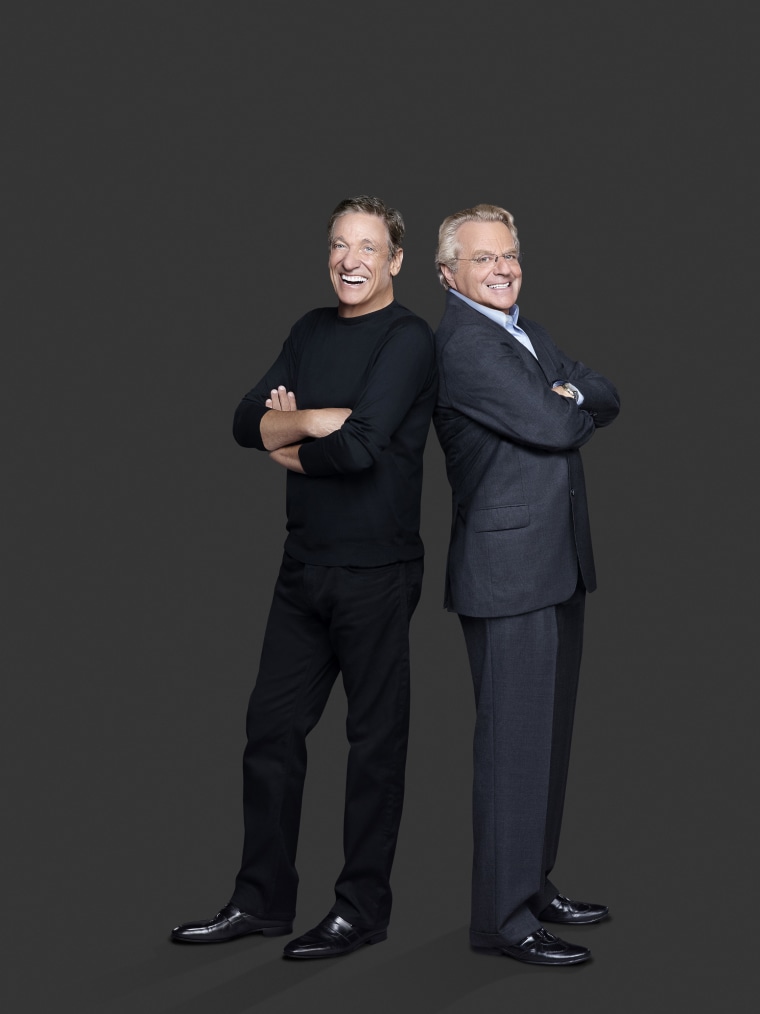Jerry Springer and Maury Povich were titans of the crowded daytime talk show field in the 1990s when their shows often erupted into spectacles of fist fights, crowd chants and surprise paternity test results.
Povich, 84, reflected on those days on TODAY April 28 as he remembered the legacy of his friendly rival following Springer's death at 79 from pancreatic cancer.
"I’m not saying that we were great friends away from the business, but I think we understood each other," Povich said. "He always said, ‘The difference between my show and your show, Maury, is that you’re the real deal, and I’m the deal.' And I said, ‘No, Jerry, you’re your own deal.' So that’s the way we had it."

Povich said Springer had no illusions about the tabloid-style appeal of his show, in which he would dub himself "the ringmaster" of the daily circus. Guests would often leap out of their chairs to physically attack other guests while the crowd chanted "Jerry! Jerry! Jerry!" as he tried to restore order.
"And we used to laugh about it. He was very honest about his show," Povich said. "I said, Jerry, your show is like wrestling.’ He says, ‘Yup, it’s like WWE.’ He was there, he never pretended to be anything else but what he was."
The two hosts also rose to prominence during the same time.
Both of their shows started in 1991 and had long and successful runs in syndication. Springer's show ran for 27 seasons until 2018, while Povich's show "Maury" ran for 31 seasons, ending in 2022. They also often shot at the same studio in Connecticut.
"Well first of all, Jerry was a sweetheart," Povich said. "We knew each other from the beginning of our talk shows."
Povich noted that Springer's show became so emblematic of entertainment in America that a British theater even made an opera about it in the early 2000s.
"Everybody had a feeling about Jerry," Povich said. "There was an opera after Jerry Springer. He penetrated a lot in our culture. You have to understand in the 1990s, it was the golden age of daytime talk shows."
During their heyday, Povich and Springer had their share of critics labeling their shows as trashy and exploitative, but both of them remained successful for decades.
"People still have an interest, and I think the reason is a lot of people used to watch because 'there but for the grace of God go I,'" Povich said. "It's not my life, thank God, let's see what other people's lives are like."
"And a lot of people watch, I think, because they went through the same things. They had problems in terms of families, and they wanted to see how it played out on TV."